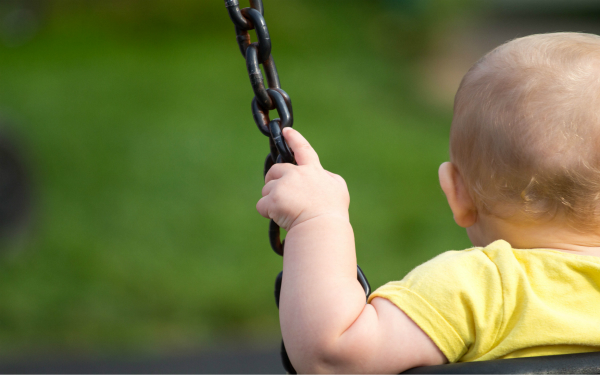
Professionals need to engage better with male carers, backed by increased investment in children’s services, to reduce the risk of them harming their babies, government advisers have said.
Systemic weaknesses in how services operated often left fathers of babies “hidden, unassessed and unengaged”, found a report by the Child Safeguarding Practice Review Panel on cases of children under one seriously harmed or killed by male carers.
Poor engagement by universal services, such as midwives and health visitors, set a pattern for how targeted services, such as children’s social care, worked with male carers, found the panel. Too often professionals made “simplistic judgments” casting men as either ‘good’ – and able to be entrusted with their children’s care’ – or ‘bad’, to be kept at arms-length or, if possible, excluded from family life.
By contrast, mothers were generally seen in a more rounded way, with their strengths identified and a focus on enabling them to be the best parents they could be – with a failure to take this approach with fathers having a “catastrophic” effect, said the panel.
Experience of abusive parenting
While there was no “single identifier”, the review found a number of factors that heightened the risk of abuse, including men who had experienced abusive or neglectful parenting themselves, leading to poor mental health. This was often exacerbated by poverty, unemployment, racism, substance misuse, problematic relationships with mothers and domestic abuse, coupled with a rapid resort to violence when men experienced difficulties with others.
“It is in the combination of factors described here that risk occurs and secondly, the fact that too many men are not well engaged by services means that those risks go unidentified,” the review concluded.
The study drew on interviews with eight men serving prison sentences who had been found guilty of killing or causing serious harm to a baby; analysis of 92 cases involving death or serious harm to babies referred to the panel; an in-depth review of 23 of these; discussions with key stakeholders, and a review of relevant literature, carried out by the Fatherhood Institute.
Of the 92 children considered, 45 were known only to universal services at the time of the abuse, 24 were known to early help, 12 were open to social care as children in need and 11 were subject to child protection plans.
“This indicates that a significant proportion of these families and these men do not become visible to more specialist services until the abusive incident occurs,” the report said.
Factors behind dangerous behaviour
Interviews with the men serving prison sentences revealed many had difficulties in their childhoods, poor attachment histories, limited coping skills and problems with anger management. Six turned to substance misuse to self-medicate for mental health problems or to try to diminish the impact of traumatic thoughts and feelings.
“These factors and experiences coalesced to create behaviour that was very dangerous to the safety and wellbeing of the babies for whom they were caring,” the report says.
The report found children’s services often did not know who the fathers were nor the risks they presented to the child.
It quoted background research that fathers were invited to child protection conferences only 55% of the time; known violent fathers were not contacted by social workers prior to meetings 38% of the time and only 68% of completed assessments included contact with the father.
The report said ‘recurrent fathers’ – those who attended multiple care proceedings – were a particularly vulnerable group who had experienced disadvantages in their childhoods and more recently.
“Whilst they may pose a risk, they are themselves also at risk and need to be seen and treated as such,” it found.
Care leaver vulnerability
The report also raised particular concerns about care leavers, whose histories often exacerbated the challenges posed by being a young parent, poverty and social isolation.
It found there was not enough focus in children’s services on preparing care leavers for parenthood, and said it should be routine to carry out pre-birth assessments for all those about to become parents. This was not “to stigmatise them,” but to “ensure that the system responds as good corporate parents and enables them to become the best parents they can be,” it added.
The report found children’s services must be “much more alert” to the risks to children of parents that were angry, frustrated or had poor impulse control, especially when they were drug users.
It said children’s services frequently reported that they were aware of cannabis use in a family’s household but that it was “taken for granted and not seen as a major risk factor demanding assessment”.
“Behaviour patterns associated with addiction seem poorly understood and indicate that much more needs to be done to support children’s practitioners to understand and respond better to patterns of drug misuse, its impact on parenting and on the health and safety of babies,” it said.
Exclusion from adults’ services
The panel also found that adult mental health and substance misuse services often excluded these men from services through tight eligibility criteria, meaning issues around personality disorder, anger management or depression were not addressed.
“However, those are often the very factors that can present serious risks to children and often warrant statutory intervention” in children’s services.
“These adults can therefore represent an enormous financial and service demand on the system as a whole, let alone create the havoc, harm and sometimes tragedy that affects some children,” it added.
Related articles
‘More investment in children’s social care needed’
The panel recommended that the government funds a mixture of local areas with different socio-economic, ethnic and cultural characteristics to develop models of good practice in working with fathers and then disseminate the learning.
This should include applying the family safeguarding model – in which specialists in domestic abuse, mental health and substance misuse work alongside children’s social workers to tackle the root causes of families’ problems – to practice with fathers. Pioneered in Hertfordshire and now being adopted by local authorities across the country, an evaluation last year found the model was “replicable and effective” in preventing children coming into care and reducing child protection plan numbers.
The panel also urged the government to pilot several areas to provide an “end-to-end, multi-agency integrated” service to tackle the issues identified in the review.
It said these schemes would need to:
- Integrate children’s services more with adults’ services, particularly mental health and substance misuse.
- Ensure that children’s social care services developed practice that improved their engagement and assessment of men involved in children in need, child protection and children in care services.
- Develop their leaving care services to ensure they addressed the need for preparation and support for parenthood.
- Develop their ante- and post-natal health provision to include fathers fully, provide extra support to those who need it and identify risk factors earlier.
- Integrate their response to the Domestic Abuse Act 2021, and identify how they would ensure a focus on the risks to babies and children and how they would work with perpetrators.
The report also called for the government to commission further research to improve understanding of the psychology and behaviour patterns of men who had physically injured babies, particularly around fathers’ backgrounds, characteristics and trigger factors for the abuse.
“Part of this research should be to explore the gender issues raised in this report, including why some of the experiences and factors described and which are experienced by men and women alike, can result in more men harming babies than women,” it added.




 Bournemouth, Christchurch and Poole
Bournemouth, Christchurch and Poole  Hampshire County Council
Hampshire County Council  Lincolnshire County Council
Lincolnshire County Council  Norfolk County Council
Norfolk County Council  Northamptonshire Children’s Trust
Northamptonshire Children’s Trust  South Gloucestershire Council
South Gloucestershire Council  Wiltshire Council
Wiltshire Council  Wokingham Borough Council
Wokingham Borough Council  Children and young people with SEND are ‘valued and prioritised’ in Wiltshire, find inspectors
Children and young people with SEND are ‘valued and prioritised’ in Wiltshire, find inspectors  How specialist refugee teams benefit young people and social workers
How specialist refugee teams benefit young people and social workers  Podcast: returning to social work after becoming a first-time parent
Podcast: returning to social work after becoming a first-time parent  Podcast: would you work for an inadequate-rated service?
Podcast: would you work for an inadequate-rated service?  Family help: one local authority’s experience of the model
Family help: one local authority’s experience of the model  Workforce Insights – showcasing a selection of the sector’s top recruiters
Workforce Insights – showcasing a selection of the sector’s top recruiters 

 Facebook
Facebook X
X LinkedIn
LinkedIn Instagram
Instagram
Start with seeing child care as a shared responsibility not the primary role of “mum”.